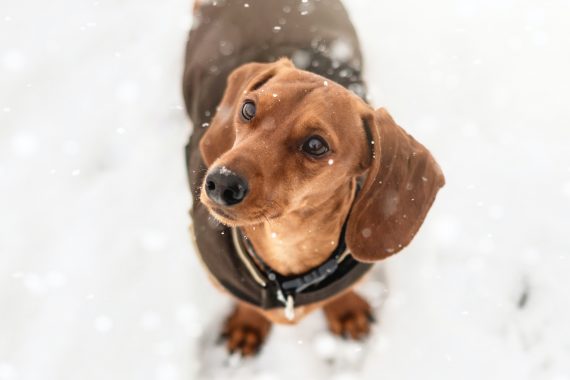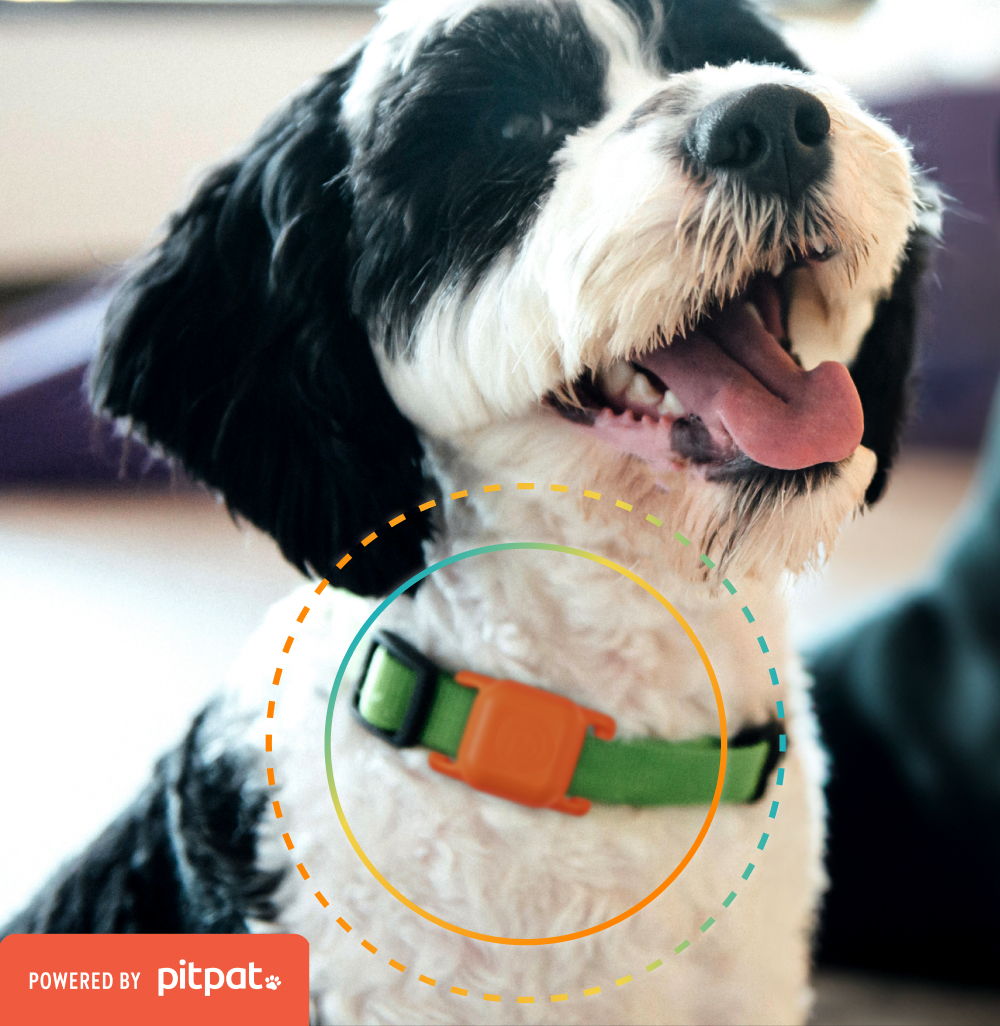Winter Weather Safety Tips Every Pet Parent Should Know

Seasons are changing and winter weather is upon us. Your dog’s winter weather safety should be top of mind! Below are a few ways to keep your dog safe and warm during the cold winter months:
Keep Your Dog Warm
Just because your dog has fur, doesn’t mean they are warm!. If you are cold, there is a good possibility your dog is cold, too. Dogs are susceptible to hypothermia and frostbite, just like humans. Ears, paws, noses, and tails can suffer permanent damage if frozen, therefore, it is important to keep dogs predominantly inside during extreme cold weather spells. Aside from quick potty breaks, a dog should be kept inside where they can be supervised and kept warm. If you suspect your dog is experiencing frostbite, wrap them in blankets, move them to a warm place, and seek immediate veterinary care.
Stay Dry
No one likes to be in wet clothes. Wet fur in cold temperatures can quickly become frozen fur and this will make your dog very cold! Keeping your dog’s fur dry when temperatures drop is key to keeping them free of frostbite and illness. If you plan to play in the snow with your pup, keep extra towels on hand to dry them off once play time in the snow has come to an end.
Frequently Check Paws for Scratches, Scrapes and Ice Buildup
Frequently check your dog’s paws for signs of cold-weather injuries such as crack or bleeding paw pads. Icy walkways can be slippery and do not allow your dog to maintain any traction. Salt thrown on the ground to create traction and reduce slipping may be harmful to your dog’s paws. To relieve your pup of any discomfort caused by ice buildup or salt from the sidewalk, check their paws and cleanse with a warm towel once they come inside. Trimming the fur between your pup’s paws will alleviate the buildup of snow and make your dog more comfortable during outdoor winter walks.
Be Mindful of Winter Chemicals
During the winter, the use of chemicals, such as antifreeze, may be more commonly found around the house. Antifreeze is dangerous to dogs as it has a sweet odor and taste, but when ingested, it is toxic and will wreak havoc on kidneys. Clean up any spills immediately. Store antifreeze and other toxic liquids in a safe location out of your pup’s reach. If available, use antifreeze coolant made with propylene glycol. This is less toxic than the traditional antifreeze made with ethylene glycol.
Winter Car Safety
Leaving your dog in a car during the hot summer months can be dangerous, but did you know the same is true about leaving your dog in the car during the cold winter months? The temperature can drop quickly and cause your dog to experience hypothermia. Cars can retain the cold similarly to a refrigerator, so before you want to take your pup with you to run a few errands, consider warming up the car prior to leaving home and never leave them in a cold car while unattended.
As the temperature drops during the cold winter months, keeping your dog indoors will be the best advice toward maintaining your dog’s health while during cooler weather. Worried your dog won’t get enough exerice? Take them to an indoor dog daycare at Dogtopia! Our climate-controlled indoor playrooms are always the perfect temperature, no matter the weather outside. Your dog will spend hours playing and socializing with other dogs and our caring and trained team. And you’ll love being able to check in on your pup with our live webcams. To find a Dogtopia near you before winter fully sets in, click here!












